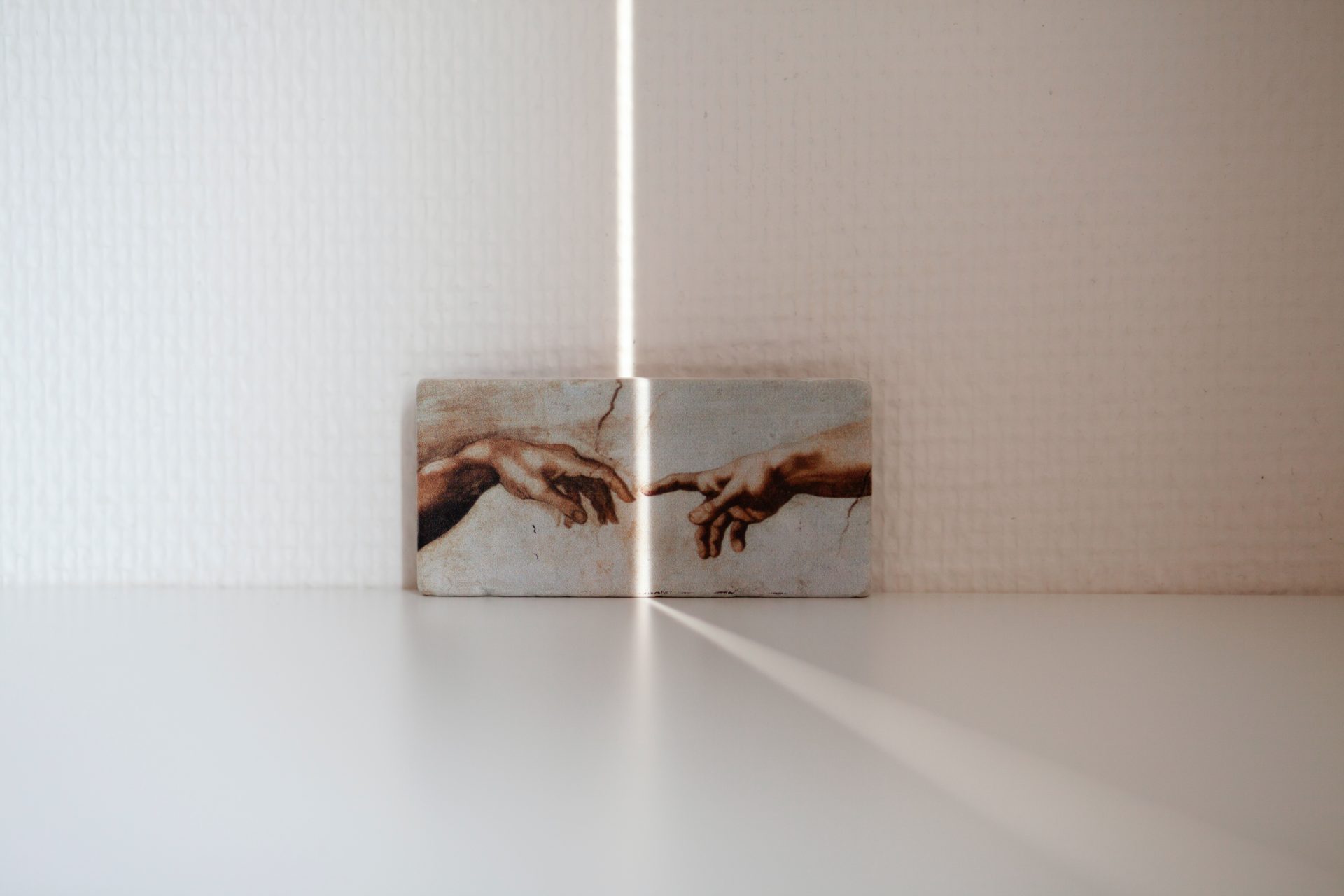
A tablet with a portion of Michelangelo’s painting, “The Creation of Adam,” with a beam of light dividing the fingers.
Photo by Cherry Laithang on Unsplash
The body of God
Imagine it with all the genders and races and physical descriptions of the world. God is male and female and both and neither and all. God is black and brown and olive and tan. God has hair in long braids, wrinkled face, flat nose, small eyes, full beard, curvy body, long arms, short legs. God wears flowing dresses, and blue jeans, and saris, and turbans, and tuxedos, and lots and lots of jewelry. God has tattoos of every animal of the world, and a single heart-shaped stud in their right ear.
And God has every ability, and every disability in the world.
God walks, God limps, God rolls, God crawls. God gets where God needs to be, gets to us, however God can.
God’s mind works with the speed—and sometimes the randomness—of ADHD. God feels pain with the depths of depression, and energy like an episode of mania. God hears voices, the voices of all people and all living things. God has no one way of solving problems. Sometimes God moves from step to step with the most analytic of minds. Sometimes God makes great intuitive leaps that cannot be explained. Sometimes God gets stuck in a loop because the present, whether good or bad, is the time where God lives.
God paints with their feet and reads with their hands. God can dance by swaying and shuffling, and sing by making noises that are not words, but express emotions that words cannot.
God is too busy reaching out to us to be concerned that they cannot see. God is too busy feeling the rhythms of music in their bones to worry about what it sounds like. God is too busy loving, loving with all God’s arrhythmic heart to be anything but grateful for the body they have.
How can we come closer to this being beyond our comprehension, this bodymind that meets none of our expectations?
By freeing ourselves of expectations.
By searching for God in the unique bodyminds of our fellow human beings.
By seeking to understand that which challenges us, and confuses us, and frightens us.
By accepting ourselves, and the bodyminds that make us who we are.
When we pray that all of this may be so; when we pray to love all bodies and minds; when we pray to be both broken and whole at once: we are praying to be more like God.
The views expressed are those of the author and not necessarily those of American Baptist Home Mission Societies.


